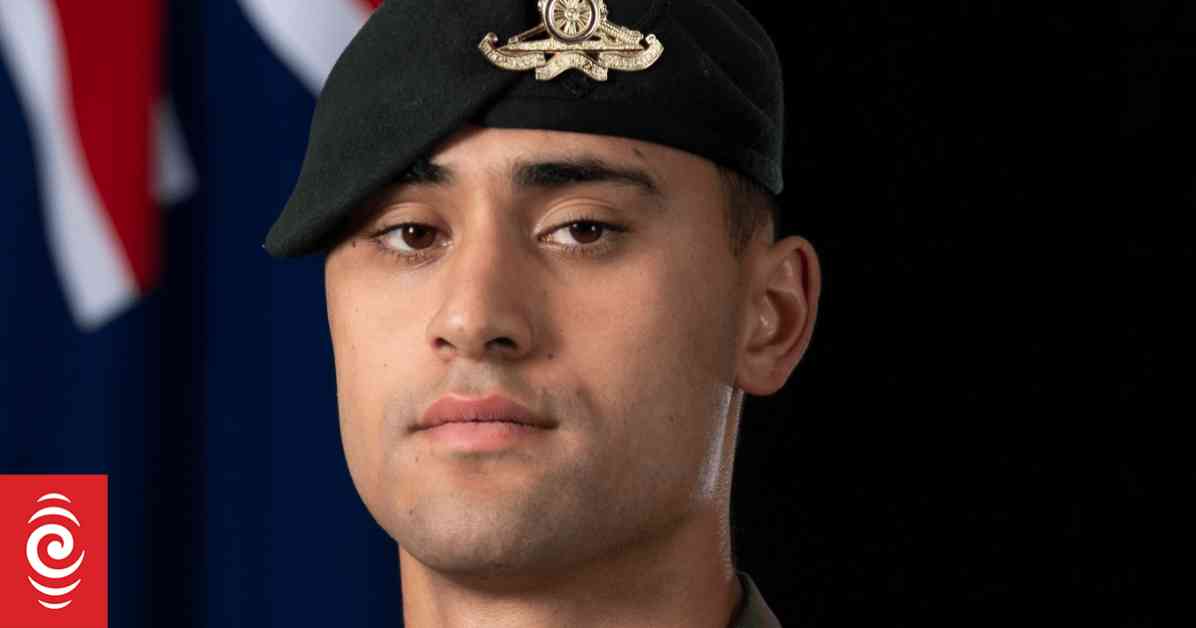Soldier Who Drowned Saving Dog Identified as Military Camp Assault Victim
The tragic death of Gunner Nikau Minhinnick Gill at the young age of 21 has brought to light a harrowing tale of violence and betrayal within the military ranks. Gill, who lost his life while attempting to rescue his beloved dog from the Manawatū River in Palmerston North last November, was revealed to be the alleged victim of a brutal attack by two fellow soldiers at the Linton Military Camp near Palmerston North.
The identity of the victim was initially shielded from the public, but Judge Mina Wharepouri recently lifted the suppression order during a Court Martial, shedding light on the events that led to Gill’s untimely demise. The court proceedings revolved around the actions of Sergeant Leaongo Tanginoa and Bombardier Gus Nove, who were accused of assaulting Gill following a military operation in Hawaii.
The prosecution painted a grim picture of the events that transpired in the early hours of November 25, 2023, alleging that Tanginoa and Nove subjected Gill to a vicious onslaught that left him battered and bruised. According to witness accounts, Gill, who was reportedly intoxicated and belligerent, faced a barrage of punches, kicks, and even strangulation at the hands of his colleagues.
While the defense argued that Tanginoa and Nove were merely attempting to restrain Gill and calm him down, the severity of the injuries sustained by the young soldier painted a different story. Gill’s friends, who were present during the altercation, provided conflicting testimonies, with some corroborating the prosecution’s version of events while others downplayed the violence that ensued.
During the trial, military prosecutor John Whitcombe emphasized that Gill’s behavior, while far from exemplary, did not justify the extreme response meted out by Tanginoa and Nove. Despite Gill’s own admission of misconduct, including verbal abuse towards Tanginoa, the excessive force used against him was deemed unwarranted and unjustifiable.
As the court deliberated on the fate of the accused soldiers, the defense sought to cast doubt on Gill’s credibility, suggesting that his friends had concocted a narrative to absolve him of responsibility. Tanginoa’s lawyer, Steve Winter, maintained that his client’s actions were fueled by self-defense and a desire to quell Gill’s aggression, rather than a malicious intent to harm.
In a surprising turn of events, Nove’s defense attorney, Matthew Hague, refuted the prosecution’s claims of physical assault, arguing that his client’s actions were aimed at silencing Gill rather than inflicting harm. Despite conflicting testimonies and varying eyewitness accounts, the truth behind Gill’s tragic fate remained shrouded in uncertainty.
As the military panel continued its deliberations, the haunting specter of betrayal and violence lingered in the air, casting a shadow over the camaraderie that is meant to define military brotherhood. The echoes of Gill’s untimely death and the events leading up to it serve as a stark reminder of the fragility of human relationships, even within the tightly knit confines of the armed forces.
In the wake of this sobering tragedy, questions lingered about accountability, justice, and the true cost of loyalty in the face of moral ambiguity. As the military community grappled with the aftermath of Gill’s untimely demise, one thing remained clear: the wounds inflicted by betrayal and violence ran deeper than the physical scars left on the young soldier’s body.

















